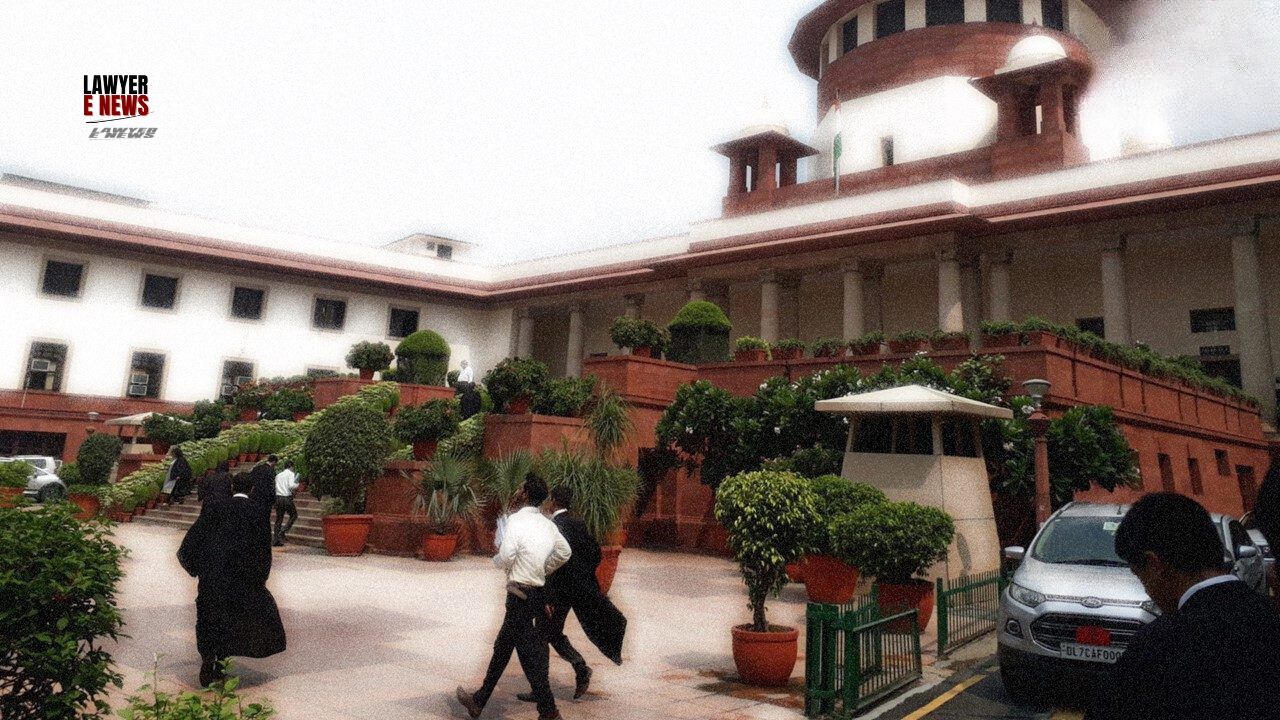-
by Admin
17 February 2026 4:27 AM



“We are surprised that the High Court despite noticing a judgment of this Court… failed to follow the dictum and followed a contrary judgment of the High Court itself, which is per se in violation of Article 141 of the Constitution of India” – In a categorical reaffirmation of settled law, the Supreme Court held that any financial assistance received under the Haryana Compassionate Assistance to the Dependents of Deceased Government Employees Rules, 2006 must be fully deducted from compensation awarded under the Motor Vehicles Act, 1988. The Court strongly criticized the Punjab and Haryana High Court for deducting only 50% of such assistance and disregarding a binding three-judge bench precedent.
The ruling came in the case of New India Assurance Co. Ltd. vs. Smt. Sunita Sharma & Ors. (Civil Appeal @ SLP (C) No. 9515 of 2020), where the insurer had challenged the partial deduction made by the High Court in a motor accident compensation case involving a deceased government employee. The bench of Justices Sudhanshu Dhulia and K. Vinod Chandran allowed the insurer’s appeal, setting aside the High Court's decision to the extent it diluted the deduction.
The Court observed, “The harmonious approach for determining a just compensation payable under the Act of 1988 is to exclude the amount received or receivable by the dependents of the deceased Government employee under the Rules of 2006 towards the head financial assistance equivalent to ‘pay and other allowances’ that was last drawn by the deceased Government employee in the normal course.”
“Ex-Gratia Is Not a Windfall, Nor Can It Be Counted Twice”: Supreme Court Applies Shashi Sharma Doctrine
Reiterating its binding ruling in Reliance General Insurance Co. Ltd. v. Shashi Sharma (2016) 9 SCC 627, the Court held that financial assistance granted under the 2006 Rules—equivalent to the last drawn pay and allowances—is intended to compensate dependents for loss of income in case of death of a government servant, and therefore cannot be claimed again under the Motor Vehicles Act.
Citing paragraph 26 of the judgment, the Court stated, “The amount receivable by the dependents/claimants towards the head of pay and allowances in the form of ex-gratia financial assistance, therefore, cannot be paid for the second time to the claimants.”
However, the Court also clarified that other statutory benefits like family pension, life insurance, provident fund etc., continue to remain unaffected, echoing the principles laid down in Helen C. Rebello v. Maharashtra SRTC and United India Insurance Co. Ltd. v. Patricia Jean Mahajan.
“The High Court Ignored Article 141 and Followed Its Own Contrary Precedent”: SC Issues Strong Caution on Judicial Discipline
In a rare and stinging observation, the Supreme Court expressed dismay that despite citing the correct precedent, the High Court still preferred to follow its own earlier view in Kamla Devi v. Sahib Singh & Ors., rather than apply the law declared by the apex court.
The bench remarked, “We cannot but observe that we are surprised that the High Court despite noticing a judgment of this Court, in the impugned judgment, failed to follow the dictum and followed a contrary judgment of the High Court itself; which is per se in violation of Article 141 of the Constitution of India.”
Supreme Court Also Applies Birender Principle: Conditional Withdrawal Based on Declaration
The Court also referred to National Insurance Co. Ltd. v. Birender (2020 SCC OnLine SC 28), wherein it had directed that any compensation under the Motor Vehicles Act would be subject to deduction of financial assistance already received under the 2006 Rules.
The Court stated, “If that application is allowed and the amount becomes payable towards financial assistance under the said Rules… the amount so received will be disclosed to the executing Court, which will have to be deducted from the compensation amount determined.”
The claimants, it held, could only withdraw compensation after filing an affidavit declaring that they had not received, nor would claim, benefits under the 2006 Rules—or that any amount already received would be disclosed and adjusted.
Final Relief: Appeal Allowed, High Court Judgment Modified, No Recovery for Amounts Already Paid
Though the Court allowed the appeal and directed full deduction of the ex-gratia payment, it extended an equitable concession to the claimants by ruling that no recovery would be made in respect of amounts already paid.
“We clarify that if the amounts are already paid to the respondents, no recovery shall be made,” the Court held.
Date of Decision: April 8, 2025
